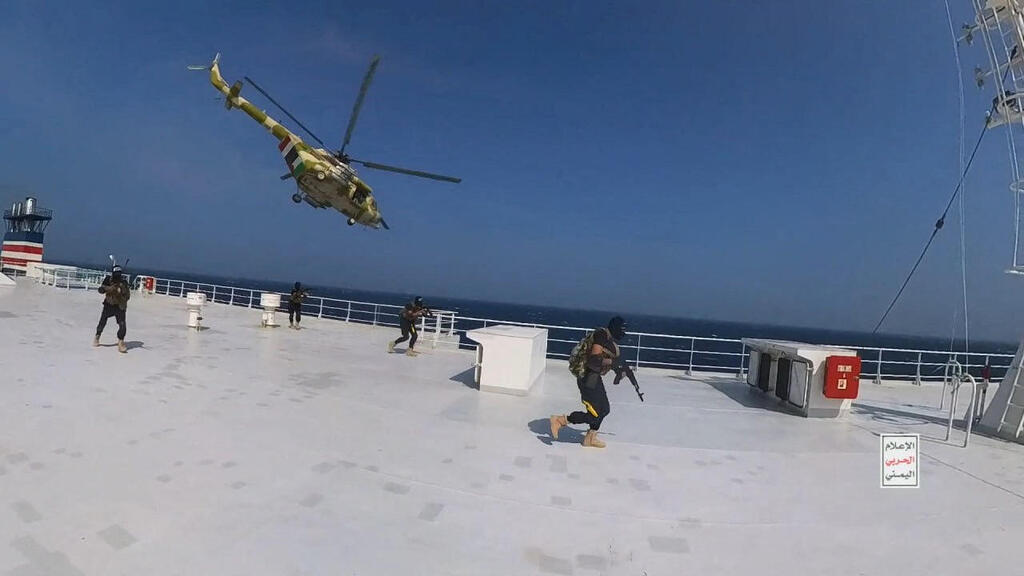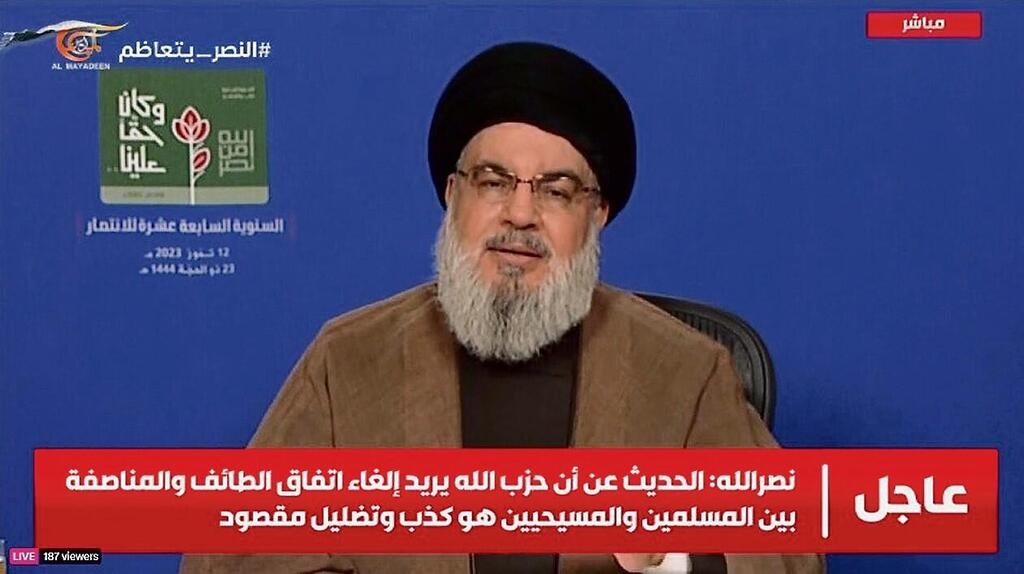Getting your Trinity Audio player ready...
The Houthis in Yemen have essentially established a naval blockade in the Red Sea, saying it will prevent ships and vessels from Israel. Israel currently is considering how to deal with the Houthi threat to attack any ship that passes through the Red Sea. While senior officials in Jerusalem say that Israel must attack the Houthis - otherwise it will show weakness, others believe it is an international problem.
Meanwhile, the United States is formulating a response in the form of sending a multinational naval force to strengthen freedom of navigation in the Red Sea, a political official said on Sunday.
In Israel, they welcomed the U.S. decision to send a multinational force to the region. Prior to the decision, Israel conveyed to the US and the international community a message according to which without such an effective response Israel will be forced to act on its own. "We cannot put up with the Houthis' continued violation of our freedom of navigation," was the main message conveyed from Israel.
More stories:
According to the officials in Israel who support military action, Israel should exact a toll against the Houthis, make them pay a heavy price and paralyze their naval activity. According to this approach, if Israel does not act, the Houthis may escalate the situation and try to damage not only vessels. For now, it seems that Israel is giving the Americans time to build an international task force in cooperation with the British in the Red Sea to deter the Houthis from violating the freedom of navigation there.
Houthi takeover of ship
3 View gallery


Should Israel attack Houthis or wait for world response?
(Photo: REUTERS/Khaled Abdullah)
In the face of the voices calling to attack the Houthis, a senior security official said that at the present time any Israeli action against the Houthis will directly serve them and the Iranians, who want to distract Israel from its main mission in Gaza. Another claim states that Israeli action will also free the world from the need to understand that the damage to that shipping route is a global problem, and not just an Israeli one.
3 View gallery


Footage of Houthi boarding of ship and takeover
(Photo: Houthi Military Media/Handout via REUTERS)
"This does not mean that Israel is not developing attack scenarios and is not preparing for a military option, but we think it makes more sense for the Americans to attack the Houthis," said an official who holds this approach.
On the northern front, a security official said that if Hezbollah does not distance itself from the border and north of the Litani River by a predetermined deadline, there will be no escaping military action.
3 View gallery


Israel waits for Hezbollah to retreat away from border or there will be an escalation
(Photo: X)
As for the ground operation in Gaza, senior Israeli officials say that there are still seven weeks left for its completion. According to them, the operation in Khan Younis will end in three to four weeks, and then three to four weeks will be left for the possibility of an operation in Rafah. "The main message here is that we will finish Phase B of the ground operation at the end of January, and then will begin the lower intensity phase of the military operation."






